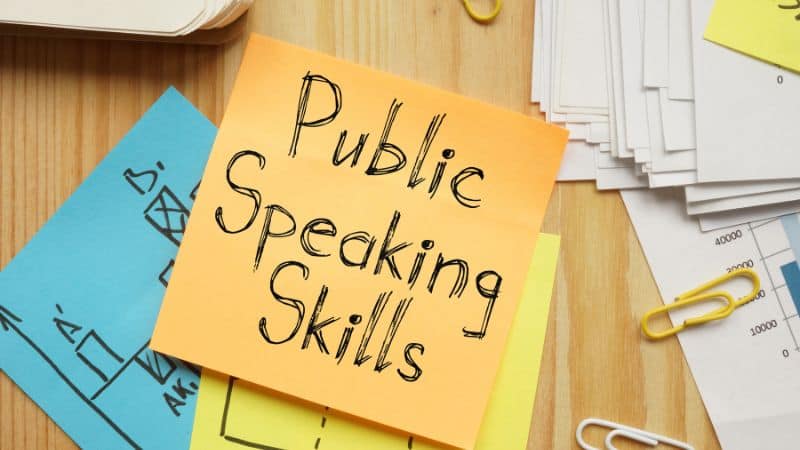You’re not here to be average. You’re here to be the best. Whatever your craft—whether it’s building businesses, leading teams, or creating art—you’re committed to mastering it.
Mastery isn’t about talent, it’s about dedication. It’s about waking up every day and doing the work, even when it’s hard. It’s about pushing past comfort, learning from failures, and improving one step at a time.
Mastering your craft means focusing on the small details when no one’s watching, striving for excellence in everything you do, and refusing to settle for “good enough.” It’s a relentless pursuit of better.
Playing your A-Game is about more than just success—it’s about becoming the best version of yourself through your work.
Master Your Craft
Mastering your craft isn’t something that happens overnight. It takes commitment, deliberate action, and a willingness to push through the tough moments.
Here’s how to get started, step by step.

1. Practice with Purpose
Practicing deliberately. Intentionally work on specific areas of weakness and refine your skills with focus.
Many people put in hours without really thinking about how they can improve, but deliberate practice targets your growth areas, ensuring you’re always sharpening your edge.
Mastery comes not from the hours you put in, but from how you spend those hours. Without deliberate practice, you can repeat the same mistakes or fail to improve. Focused effort on specific skills leads to faster, more effective learning.
To do this, choose one skill that you want to get better at and dedicate 30 minutes a day to working on just that. Don’t just practice for the sake of practicing—focus on pushing your limits and making noticeable improvements.
2. Go Deep, Not Wide
When you spread yourself too thin, you don’t achieve real depth in anything. Instead of trying to juggle multiple tasks at once, focus deeply on one thing.
This concentrated effort leads to better outcomes and more significant progress in your craft.
When you commit to uninterrupted focus, you’ll see the best results. Multitasking or jumping between tasks might make you feel busy, but it rarely produces high-quality work.
Deep work, on the other hand, allows you to get into a state of flow where you can do your best thinking and perform at a high level.
To implement this, block out two hours each day for deep work. Turn off distractions, put your phone away, and focus solely on the task at hand. You’ll find that this dedicated time produces more valuable and meaningful progress than a full day of scattered effort.
3. Embrace the Long Game
Mastery is not a quick fix. It’s a long-term commitment, and that’s why it’s essential to embrace the process rather than looking for instant success. Too many people give up when they don’t see immediate results.
Real mastery happens slowly and steadily over time.
Keep showing up, even when you’re not seeing obvious improvements. Mastery requires resilience, persistence, and a willingness to keep going when others would quit.
Set a long-term goal for your craft—something you can work on for a year or more. Break that goal into smaller milestones, and commit to working toward it every single day.
The daily practice may not always feel like much, but over time, you’ll see how far you’ve come.
4. Get a Mentor
You don’t have to figure it all out on your own—someone who’s already been there and done that can help guide you, show you the ropes, and help you avoid common pitfalls.
A good mentor will accelerate your learning curve significantly.
The mentorship process allows you to gain wisdom, insider knowledge, and hands-on learning that would take you years to acquire on your own. You get access to shortcuts and advice that can fast-track your progress.
To find a mentor, look for someone whose work you admire and who is further along in their journey than you. It doesn’t have to be a formal mentorship either—you can follow their work, read their books, and learn from afar. But if you can, reach out, ask for advice, and learn directly from them.
5. Outwork Talent
Hard work and perseverance beat talent almost every time. Mastery is about sticking with something long enough to get really good at it—longer than most people are willing to commit.
When you outwork others, you gain an edge that talent alone can’t provide. Talent might give someone a head start, but it’s grit—the ability to keep going when things get tough—that allows you to truly master your craft.
This mindset is crucial for anyone serious about reaching the top of their field.
To outwork talent, set a schedule for consistent practice. Commit to it, even on days when you don’t feel motivated. Put in the extra hours when others have given up. You’ll build the skills and resilience needed to surpass those who rely solely on talent.
6. Get Comfortable with Failure
Failure is not a setback—it’s part of the process. Many people fear failure so much that they avoid taking risks, but the reality is, failure is how you learn.
You’ll face moments when most people quit. But those who push through failure and keep going end up mastering their craft.
Why does this matter? Because avoiding failure keeps you in your comfort zone, and you won’t improve if you’re always playing it safe.
Mastery requires you to take on challenges, make mistakes, and learn from them.
The faster you fail, the quicker you’ll grow.
The next time you face a difficult project or task, don’t avoid it because you fear failure. Dive in, make mistakes, and adjust as you go. Treat each failure as valuable feedback—it’s helping you get closer to mastery.
7. Immerse Yourself in the Process
Mastery takes time. It’s not just about showing up—it’s about fully immersing yourself in your craft, day after day, for years.
This is more than just getting things done; it’s about deep commitment and focused time dedicated to improvement.
Too often, we expect quick results. But immersion—dedicating significant time to your craft—is what separates those who dabble from those who truly master their work. The more time you spend fully focused on improving, the more expertise you build over time.
To immerse yourself in the process, set a weekly goal of hours dedicated to your craft. Start with 10 hours a week, then gradually increase. Make sure these hours are focused, intentional, and distraction-free.
Over time, you’ll see how this immersion leads to deeper mastery.
8. Quit the Wrong Things Fast
Not every project or task is worth your time. Part of mastering your craft is knowing when to let go of things that aren’t moving you forward. Smart quitting is key—quit the wrong things quickly so you can focus your time and energy on the right ones.
This is important because many people waste time sticking with tasks or projects that don’t serve their bigger goals. They think persistence means never quitting, but true mastery is about focusing on what’s essential and letting go of the rest. It’s about understanding which pursuits lead to mastery and which ones are dead ends.
To apply this, regularly review your workload and ask, “Is this moving me closer to mastery?” If the answer is no, cut it out.
Free up your time for the projects that truly matter and where you can make the biggest impact.
9. Find Flow
Flow is that state where you’re fully immersed in your work, performing at your highest level, and losing track of time. Being in a state of flow is key to doing your best work and mastering your craft.
In a flow state, everything clicks, and you can produce more in a few hours than most do in a day.
Flow is where creativity, productivity, and mastery intersect. When you’re in flow, you’re not just doing the work—you’re deeply engaged, learning faster, and pushing yourself to new heights. It’s the sweet spot where skill meets challenge, and real progress happens.
To find flow, eliminate distractions and choose tasks that are challenging but not overwhelming. Set aside dedicated time for deep focus. When you feel yourself entering that state of flow, protect it. Let yourself get fully absorbed, and you’ll notice the quality and speed of your work skyrocket.
10. Never Stop Learning
Mastery isn’t a finish line—it’s an ongoing process. The moment you think you’ve “made it,” you stop improving.
True masters are always learning, always pushing themselves to become better.
The world is always changing, and your craft will evolve too. If you stop learning, you’ll get left behind. The best in any field are constantly learning, tweaking, and refining their skills. They know there’s always more to discover, more to master.
To keep learning, set aside time each week for growth. Read books, take courses, seek feedback, and surround yourself with people who push you to improve. Mastery isn’t about reaching the top—it’s about continuously leveling up, no matter how far you’ve come.
=> 10 Life Goals to Help You Live Your A-Game
Robert Greene’s on Apprenticeship
Robert Greene, in his book Mastery, cuts through the noise. If you want to master your craft, you don’t need tricks or shortcuts—you need an apprenticeship.
And that doesn’t mean finding an old-school master with a hammer and anvil. It means dedicating yourself to the learning process in whatever you do, treating it like an apprentice would.
Apprenticeship is how you absorb knowledge, hone your skills, and build your foundation. It’s the grind before the glory.
No one skips this step. Even the greatest minds of all time—think Da Vinci or Einstein—spent years mastering the basics before they made their mark. Greene argues that real mastery comes from committing to the long haul, learning everything from the ground up, and accepting that this stage takes time.
But the most important part? Humility. The apprenticeship phase is where you set your ego aside. Greene says you need to embrace being a student, not trying to show off or prove yourself too early. Instead, focus on soaking in as much as you can, learning from mistakes, and refining your abilities. You’re not a master yet, and that’s okay. It’s about becoming a sponge—learning from everyone and everything around you.
Greene’s formula is simple: be curious, stay patient, and put in the hours. In the apprenticeship phase, you’re not aiming for recognition. You’re aiming for growth. That’s how you build the foundation that leads to real mastery.
The takeaway? Mastery starts with dedication to the process, not chasing shortcuts.
Seth Godin on Quitting the Wrong Things Fast
Most people are told never to quit. They’re told to stick it out no matter what. But Seth Godin flips that thinking on its head.
In The Dip, he explains that quitting isn’t the enemy. In fact, knowing when to quit is a skill. The real problem? Sticking with the wrong things for too long.
If something’s not working, quit it fast. It’s not about giving up easily. It’s about understanding that some efforts aren’t worth your time. He says most of us waste energy pushing through “dead ends,” projects or jobs that are going nowhere.
We tell ourselves, “I just need to push a little harder,” but deep down, we know it’s a losing battle.
The key is to recognize when you’re in “the Dip”—that temporary slump in every project where things get tough but there’s still potential on the other side. If the end goal is worth it, you push through. But if the reward isn’t worth the pain, you have to make a decision: quit and move on to something better.
Smart quitting clears the path for the things that matter.
Quit the wrong things so you can focus on the right ones. The real winners aren’t the people who never quit. They’re the people who know what to quit. When you stop pouring time into projects, jobs, or goals that aren’t delivering, you free yourself up to invest in the things that truly matter—your A-Game.
So, if it’s not working, don’t drag it out. Cut your losses, pivot, and go after something that will pay off. That’s not failure—it’s smart strategy.
Mastering your craft is about more than just talent. It’s about commitment, deliberate action, and a willingness to keep learning.
Pick one or two of these strategies, start applying them consistently, and watch your progress stack up over time.
You’re in control of your journey to mastery.







